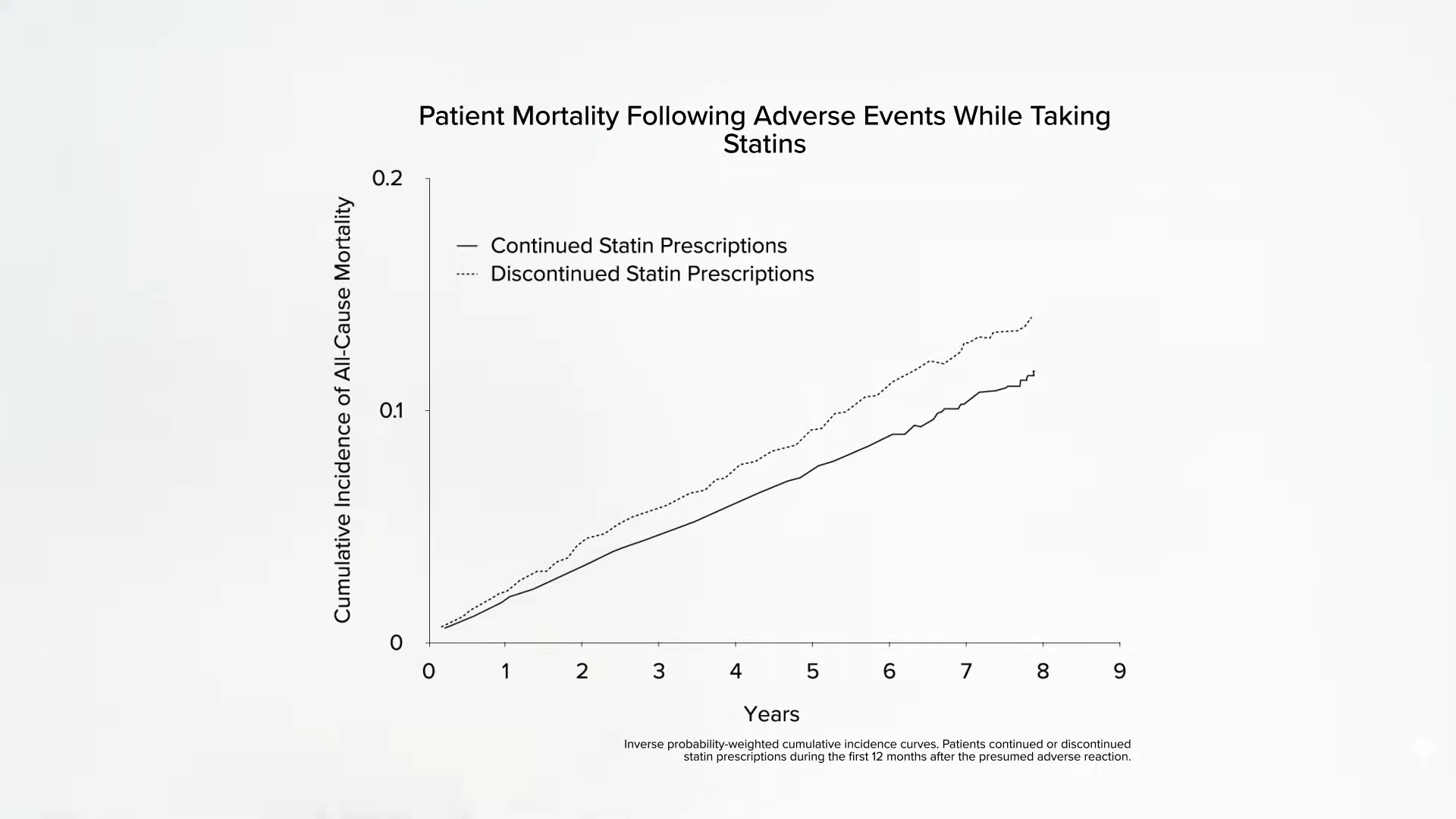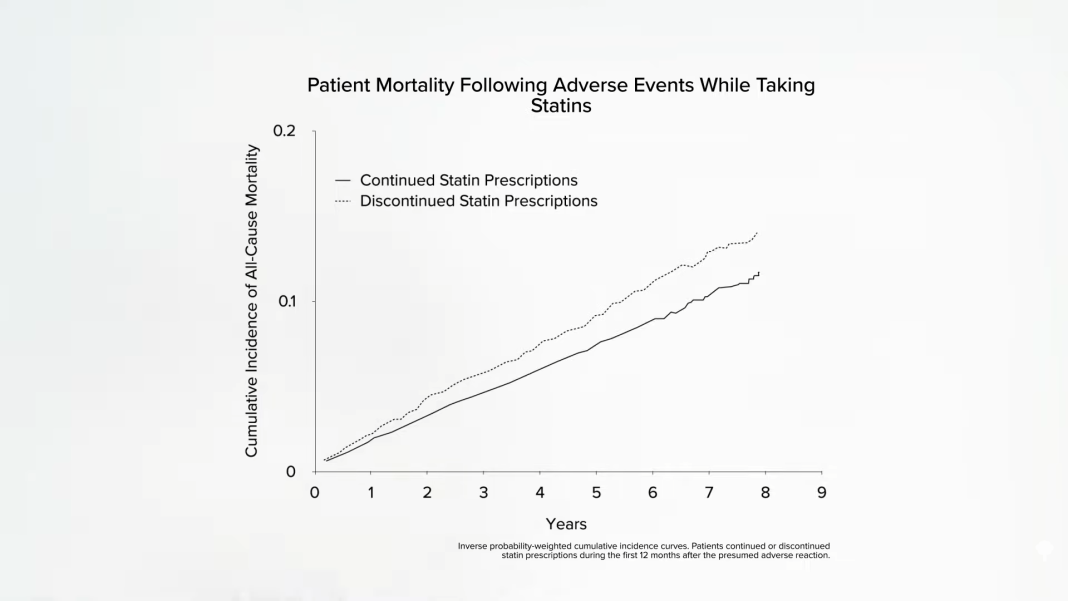Why is the incidence of unwanted side effects from statins so low in medical trials whereas showing to be so excessive in the actual world?
“There may be now overwhelming proof to assist decreasing LDL-C (low-density lipoprotein ldl cholesterol)â€â€”so-called dangerous ldl cholesterol—to cut back atherosclerotic heart problems (CVD),†the primary killer of women and men. So, why is adherence to cholesterol-lowering statin drug remedy such “a significant problem worldwideâ€? Researchers discovered “that almost all of research reported that no less than 40%, and as a lot as 80%, of sufferers didn’t comply absolutely with statin remedy suggestions.†Three-quarters of sufferers might flat out cease taking them, and virtually 90 % might discontinue remedy altogether.
When requested why they stopped taking the capsules, most “former statin customers or discontinuers…cited muscle ache, a facet impact, as the first purpose…†“SAMSsâ€â€”statin-associated muscle signs—“are by far probably the most prevalent and necessary hostile occasion, with as much as 72% of all statin hostile occasions being muscle-related.†Taking coenzyme Q10 dietary supplements as a remedy for statin-associated muscle signs was a good suggestion in concept, however they don’t seem to assist. Usually, side-effect signs go away if you cease the drug however can generally linger for a 12 months or extra. There is “rising proof that statin intolerance is predominantly psychosocial, not pharmacological.†Actually? It might be largely simply in folks’s heads?
“Statins have developed a nasty popularity with the general public, a phenomenon pushed largely by proliferation on the Web of weird and unscientific however seemingly persuasive criticism of those medicine.†“Does Googling result in statin intolerance?†However folks have stopped taking statins for many years earlier than there even was an Web. What sorts of knowledge have medical doctors recommended that sufferers are falsely “misattribut[ing] regular aches and pains to be statin unwanted side effects�
Properly, in case you take individuals who declare to have statin-related muscle ache and randomize them backwards and forwards between statins and an identical-looking placebo in three-week blocks, they’ll’t inform whether or not they’re getting the actual drug or the sugar capsule. The issue with that research, although, is that it could take months not solely to develop statin-induced muscle ache, however months earlier than it goes away, so no surprise three weeks on and three weeks off will not be lengthy sufficient for the individuals to discern which is which.
Nevertheless, these information are extra convincing: Ten thousand folks had been randomized to a statin or a sugar capsule for a couple of years, however so many extra folks had been dying within the sugar capsule group that the research needed to be stopped prematurely. So then everybody was provided the statin, and the researchers famous that there was “no extra of studies of muscle-related AEs†(hostile results) amongst sufferers assigned to the statin over these assigned to the placebo. However when the placebo part was over and the folks knew they had been on a statin, they went on to report extra muscle unwanted side effects than those that knew they weren’t taking the statin. “These analyses illustrate the so-called nocebo impact,†which is akin to the other of the placebo impact.
Placebo results are constructive penalties falsely attributed to a remedy, whereas nocebo results are adverse penalties falsely attributed to a remedy, as was evidently seen right here. There was an extra charge of muscle-related hostile results reported solely when sufferers and their medical doctors had been conscious that statin remedy was getting used, and never when its use was hid. The researchers hope “these outcomes will assist guarantee each physicians and sufferers that almost all AEs related to statins aren’t causally associated to make use of of the drug and will assist counter…exaggerated claims about statin-related unwanted side effects.â€
These are the sorts of outcomes from “placebo-controlled randomised trials [that] have proven deï¬nitively that just about the entire symptomatic hostile occasions which are attributed to statin remedy in routine observe aren’t truly attributable to it (ie, they signify misattribution.)†Now, “only some sufferers will consider that their SAMS are of psychogenic origin†and simply of their head, however their denial might have “lethal penalties.†Certainly, “discontinuing statin remedy could also be a life-threatening mistake.â€
Beneath and at 4:46 in my video How Widespread Are Muscle Aspect Results from Statins?, you may see the mortality of those that stopped their statins after having a potential hostile response in comparison with those that caught with them. This interprets into about “1 extra demise for each 83 sufferers who discontinued remedy†inside a four-year interval. So, when there are media studies about statin unwanted side effects and other people cease taking them, this may “lead to hundreds of deadly and disabling coronary heart assaults and strokes, which might in any other case have been averted. Seldom within the historical past of recent therapeutics have the substantial confirmed advantages of a remedy been compromised to such an extent by severe misrepresentations of the proof for its security.†However is it a misrepresentation to counsel “that statin remedy causes side-effects in as much as one fifth of sufferersâ€? That is what’s seen in medical observe; between 10 to 25 % of sufferers positioned on statins complain of muscle issues. Nevertheless, as a result of we don’t see anyplace close to these sorts of numbers in managed trials, sufferers are accused of being confused. Why is the incidence of unwanted side effects from statins so low in medical trials whereas showing to be so excessive in the actual world?Â

Take this meta-analysis of medical trials, for instance: It discovered muscle issues not in 1 in 5 sufferers, however just one in 2,000. Ought to everybody over a sure age be on statins? Not surprisingly, each a kind of trials was funded by statin producers themselves. So, for instance, “how may the statin RCTs [randomized controlled trials] miss detecting gentle statin-related muscle hostile unwanted side effects comparable to myalgia [muscle pain]? By not asking. A assessment of 44 statin RCTs reveals that just one straight requested about muscle-related hostile results.†So, are the overwhelming majority of unwanted side effects simply being missed in all these trials, or are the overwhelming majority of unwanted side effects seen in medical observe only a figment of sufferers’ creativeness? The underside line is we don’t know, however there’s definitely an pressing must determine it out.

